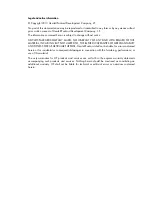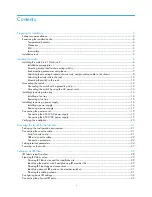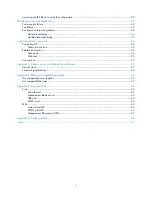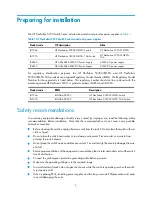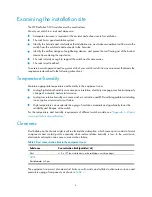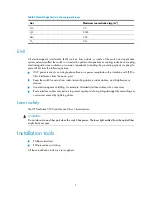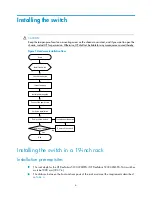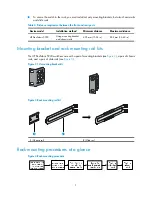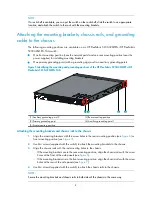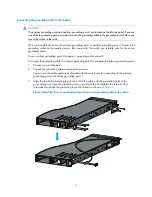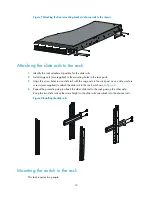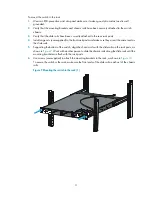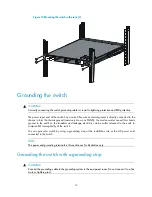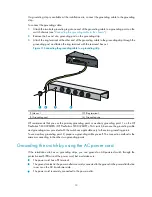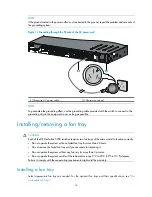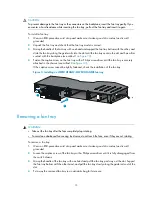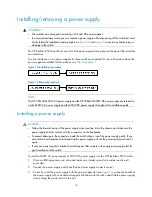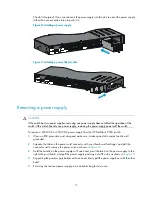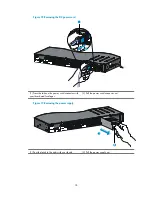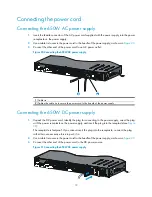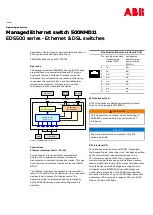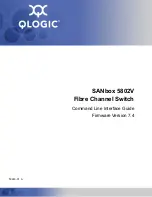
4
Examining the installation site
The HP FlexFabric 5930 switches must be used indoors.
Mount your switch in a rack and make sure:
•
Adequate clearance is reserved at the air inlet and exhaust vents for ventilation.
•
The rack has a good ventilation system.
•
Identify the hot aisle and cold aisle at the installation site, and make sure ambient air flows into the
switch from the cold aisle and exhausts to the hot aisle.
•
Identify the airflow designs of neighboring devices, and prevent hot air flowing out of the bottom
device from entering the top device.
•
The rack is sturdy enough to support the switch and its accessories.
•
The rack is well earthed.
To ensure normal operation and long service life of your switch, install it in an environment that meets the
requirements described in the following subsections.
Temperature/humidity
Maintain appropriate temperature and humidity in the equipment room.
•
Lasting high relative humidity can cause poor insulation, electricity creepage, mechanical property
change of materials, and metal corrosion.
•
Lasting low relative humidity can cause washer contraction and ESD and bring problems including
loose captive screws and circuit failure.
•
High temperature can accelerate the aging of insulation materials and significantly lower the
reliability and lifespan of the switch.
For the temperature and humidity requirements of different switch models, see "
Appendix A Chassis
views and technical specifications
."
Cleanness
Dust buildup on the chassis might result in electrostatic adsorption, which causes poor contact of metal
components and contact points, especially when indoor relative humidity is low. In the worst case,
electrostatic adsorption can cause communication failure.
Table 2
Dust concentration limit in the equipment room
Substance Concentration
limit (particles/m³)
Dust
≤
3 x 10
4
(no visible dust on the tabletop over three days)
NOTE:
Dust diameter
≥
5
μ
m
The equipment room must also meet strict limits on salts, acids, and sulfides to eliminate corrosion and
premature aging of components, as shown in
Table 3
.


